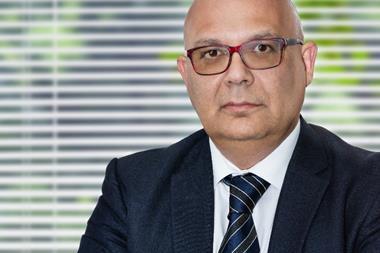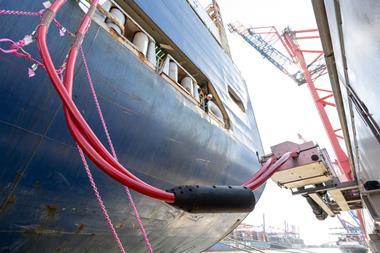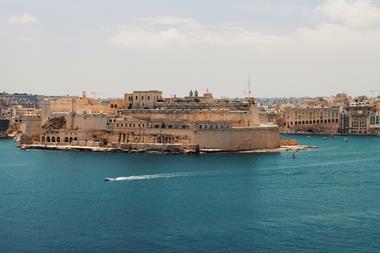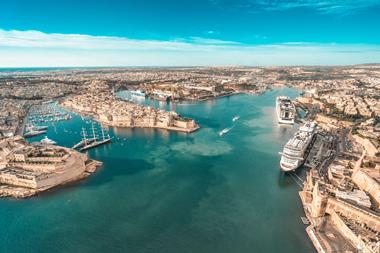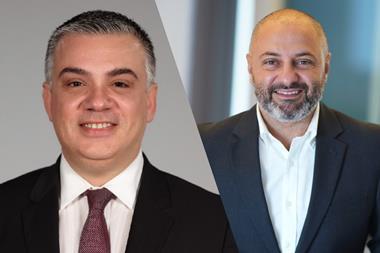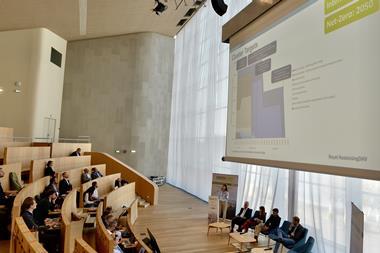European Union ports and non-EU ports do not compete on a level playing field when it comes to environmental legislation and the impact of EU legislation must be monitored, delegates heard during the GreenPort keynote panel discussion around climate change, energy efficiency and GHG emissions reduction and adaptation.
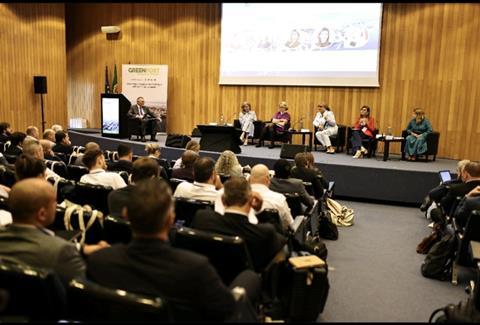
A key concern is that shipping has the flexibility to evade emissions regulation where ports cannot. Business could be lost – or has already been lost – as a result.
Discussing the Fit for 55 package, the inclusion of maritime transport in the EU Emissions Trading System (ETS) and other European regulations, Isabelle Ryckbost, secretary general of ESPO, said: “Sustainability is one of the main pillars for ports – green and sustainability is the only way forward. We do not discuss the goals/aims. But now we are getting into the phase of implementation [of European regulations] – and it has been a lot of very ambitious initiatives at the same time – we already see some problems and some difficulties.
“Ports start getting into the details of what it will mean – and for ports it is a very strict framework, whereas for ships there is quite a lot of flexibility. For ships, there is room to evade [Fit for 55] and go to ports outside Europe. Also implementation can be quite costly – investments can be quite risky.”
Lamia Kerdjoudj, secretary general of FEPORT, said competitiveness and resilience were key. “We are of course taking very proactive action within the EU when it comes to the environment and this is something we should be proud of but at the same time, other regions are not taking the same legislation, so competitors close to Europe are not going to take the same rules. That is of great concern. We want close monitoring by the European Commission on the impacts – because, as you know, when cargo leaves a port, it generally doesn’t come back.”
She emphasised the importance of dialogue with policy makers. “At the end of the day, it is also about trying to remain competitive. Environmental ambition has a cost – who is going to pay for that? For the moment, it is not so clear.”
Isabel Moura Ramos, executive board member at the Port of Lisbon Authority, described the port’s discussions around the future of inland navigation to achieve a modal shift – “but we talk with operators and they say, who is going to pay for the movements in the terminal to the barge and from the barge to logistics and we say – we all need to pay it, it is not just the port authority. We are already paying that with the external negative impacts we have from the trucks that go out of our terminal. This is a difficult exercise but there is openness to new business models. We need to think about new business models inside the ports – there is no way out.”
Maja Markovcic Kostelac, executive director of EMSA, said: “Competition is the fuel of a market economy; of course it will always exist but here we are talking about a higher stake.
If we don’t act, the price which we normally all pay, as consumers, will be much higher. We as Europe are not just introducing high standards to implement them, but we are really trying to spread and promote a global approach.” This happens at the IMO and also includes issues such as workers’ and seafarers’ rights, she added. “The risk is global. Maritime transport is global, so solutions should be found on a global level. Nevertheless, we all know the global community is not a nice family sitting around the table sticking to agreement. We are not naïve. But we are trying to bring the same level playing field to the areas around us.”
Nicolette van der Jagt, director of general of CLECAT, also pointed out that all modes of transport, including maritime, have been confronted with a huge amount of legislation recently, including the Greening Freight Transport Package. “We try to bring the practicalities to a lot of the proposals from the EC which are often being made behind a desk,” she said.

